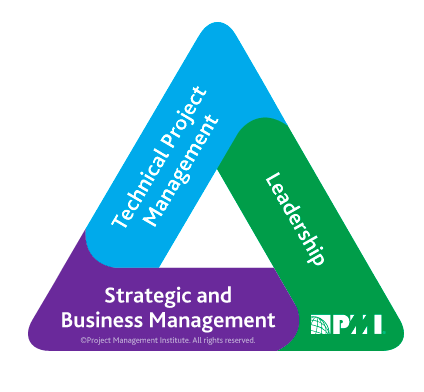CJ Walker Waite, PhD, PMP, professor of practice at Northeastern, explains the impact project management can have on your career—even if you don’t formally pursue the discipline.
We are at the beginning of what experts call the “Third Wave of the Digital Age”—the point at which major trends in business and industry take hold of society and today’s innovators and change agents saddle up to remake the world from top to bottom.
It happened in the Age of Industry, Transportation, Communication, and, now, the Digital Age. Through every one of these evolutions, there was one common thread: project management. It was the project management discipline that served as the vehicle for transition, and will be what guides you through future changes in your career.
Download Our Free Guide to Advancing Your Project Management Career
Learn what you need to know, from in-demand skills to the industry’s growing job opportunities.
This Third Wave is expected to see 80 percent of all commerce conducted online within a decade, according to AOL co-founder Steve Case, author of “The Third Wave.” Most organizations will downsize and move deeper into tele-creating, changing how people think about their roles, speak to each other in remote environments, and the power they’re given to create in this new world—where instantly adapting and improvising will make the difference between growing and sustaining or losing market share. Executive suites will be dominated by management theorists, the function and shape of teams will radically change, and workers will be confronted with constantly evolving organizational designs and new configurations of how everyone lives and works.
Historically, project management has been cited as the “accidental profession.” The reason being, there were no degrees or educational courses in project management; you studied law, engineering, marketing, medicine, or business. Then when you landed a job, you were tasked with working on projects about legal processes, or designing and constructing a building, or creating a marketing campaign. In other words, you were working on projects.

The “Talent Triangle,” courtesy of the Project Management Institute
In today’s world, we’re seeing a trend where project management is expanding within industries that were traditionally less project-oriented, such as healthcare, publishing, and professional services. In fact, the competencies required for future portfolio, program, and project managers have evolved into the “Talent Triangle,” where the basic understanding of the tools and techniques of developing a scope, schedule, and budget are comparable to knowing how to balance your checkbook. These basics are fundamentals, because nearly all business endeavors are project-based. As such, by developing and mastering these capabilities, you are creating transferable skill sets.
One of the unexpected impacts that project management could have on your career is the ability to stay relevant. Project management is a field of study and profession that teaches you to adapt to the changing needs of business and the demands of industry. You can cultivate your interests and deliver on the value of your talent.
Even if you envision your future as an artist, technician, or philosopher, and don’t have the interest or acumen to pursue a managerial track, project management could still impact your career. With technology infused into every aspect of life, the rate of change will only increase, and if you’re unable to manage change, you’ll be met with chaos. In any endeavor, whether personal or professional, there are fundamental project management characteristics that will prepare you for our ever-changing world. Examples include:
- Time Management: There is one element in life that is given but once, can never be returned, and is priceless: your time. How do you manage and guard your time so that you can maximize its value? One of the key tenants of project management is the skill and ability to manage time—something that can be advantageous to anyone in any pursuit.
- Organization and Discipline: The world is changing at an exponential rate, and in order to manage it, you need organization and discipline. Unmanaged change is chaos. Managed change means being opportunistic, timely, and delivering within the “value window” for stakeholders. This is, in fact, another core skill acquired through understanding and applying project management strategies.
- Communications: We function in a world where effective communication is a fundamental key to success. Through the communication process, you begin to better understand your viewpoints as you learn from others’. You start to see the strengths and weaknesses in your own arguments and learn how to substantiate and solidify your ideas and opinions. Project management focuses on interactive communications between sender and receiver to ensure that the message is received and that the receiver responds as desired. It’s persuasion with a punch.
There’s a saying, “The ends justify the means.” In looking at the unexpected impact project management could have on your career, we are now finding that the means justify the end.







Related Articles
Master’s in Project Management or an MBA: What’s the Difference?
6 Project Management Trends Emerging in 2023
Master’s Degree Comparison: Sports Leadership vs. Sports Management